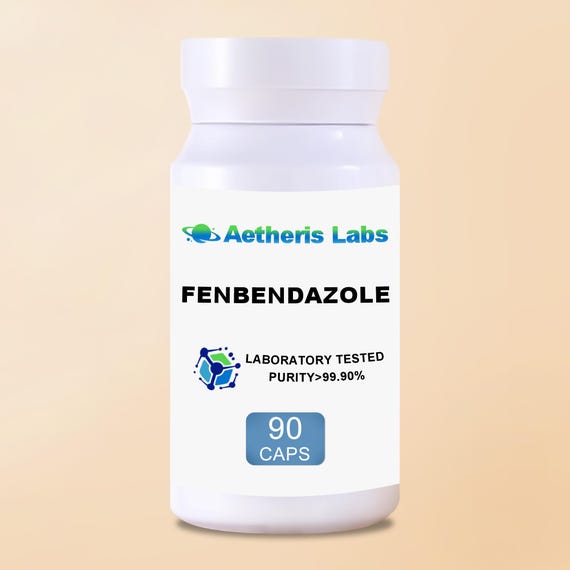Exploring the Systems Behind Fenbendazole and Its Influence on Pet Health
Fenbendazole is a widely utilized anthelmintic known for its performance against numerous parasites. Its key mechanism entails the inhibition of microtubule development, which interrupts critical procedures in these microorganisms. Past its antiparasitic residential or commercial properties, fenbendazole also appears to boost immune reactions and possesses anti-inflammatory benefits. Understanding these diverse results might reveal brand-new applications for pet health. Questions remain regarding its complete possibility and safety profile.
The Pharmacokinetics of Fenbendazole
The pharmacokinetics of fenbendazole, a widely made use of anthelmintic in vet medicine, entails the study of its absorption, circulation, metabolic process, and excretion within animal systems. After administration, fenbendazole is rapidly soaked up from the gastrointestinal system, with peak plasma concentrations happening within hours. Its distribution is influenced by variables such as cells binding and lipid solubility, permitting it to permeate numerous cells successfully. The medication goes through substantial metabolic process primarily in the liver, where it is converted right into active and inactive metabolites. These metabolites contribute in the medicine's general efficacy and safety and security account. Excretion takes place mostly with feces, with a smaller percentage gotten rid of by means of pee. The half-life of fenbendazole varies among varieties, which influences application programs. Comprehending these pharmacokinetic residential properties is necessary for enhancing its restorative use and ensuring effective bloodsucker control in veterinary methods.
Systems of Action Against Bloodsuckers
Fenbendazole exerts its antiparasitic impacts primarily via the inhibition of microtubule development in parasites. This disruption impacts their structural honesty and cellular features, bring about impaired basal metabolism. Because of this, the medicine properly jeopardizes the survival and recreation of various parasitical microorganisms.
Inhibition of Microtubule Development
Inhibition of microtubule formation represents a vital system via which particular anthelmintic agents, including fenbendazole, apply their impacts on bloodsuckers. Fenbendazole binds to tubulin, a healthy protein that creates microtubules, interrupting the polymerization procedure needed for microtubule setting up. This disturbance impairs important cellular functions, consisting of mitosis, intracellular transport, and architectural integrity. As microtubules play an essential duty in maintaining the shape and feature of parasitic cells, their restraint results in cell cycle arrest and eventual fatality of the bloodsucker. This device is particularly effective versus nematodes, as their dependence on microtubules for movement and nutrient absorption makes them prone to fenbendazole. Subsequently, the inhibition of microtubule formation is an essential aspect of fenbendazole's restorative efficiency in vet medicine.
Disturbance of Basal Metabolism
Interfering with energy metabolic process is an additional vital mechanism through which fenbendazole targets parasitic organisms. This anthelmintic changes the energy production paths within bloodsuckers, primarily affecting their capability to produce adenosine triphosphate (ATP) By preventing glucose uptake and interrupting mitochondrial function, fenbendazole limits the power sources crucial for the survival and recreation of these organisms. Therefore, parasites come to be significantly vulnerable to ecological stresses and immune responses. The interference in power metabolic rate not just affects the bloodsuckers straight yet also minimizes their capacity to take in nutrients, additionally impairing their development - fenbendazole capsules. On the whole, the interruption of energy metabolic rate stands for a basic aspect of fenbendazole's effectiveness against numerous parasitical infections, adding considerably to enhanced pet wellness outcomes
Potential Side Results and Safety And Security Profile
The possible negative effects and security account of fenbendazole warrant cautious factor to consider, especially in vet applications. While usually related to as secure, some animals might experience adverse responses, including stomach disturbances such as vomiting and diarrhea. Additionally, neurological signs, although rare, have been reported in delicate people, highlighting the demand for basics tracking throughout treatment.

Fenbendazole's safety and security in numerous species, consisting of dogs and felines, has been recorded, however dose and duration of therapy should be carefully taken care of to minimize threats. Expecting or lactating animals might also need unique focus, as the results on establishing unborn children or nursing spawn are not fully comprehended.
Normal veterinary consultations can help reduce prospective side results and ensure the medicine is carried out suitably. While fenbendazole is an effective anthelmintic agent, alertness regarding its side impacts is important for preserving pet health and wellness.
Fenbendazole's Influence on Immune Feature
Fenbendazole has been kept in mind for its possible to modulate body immune system reactions in hop over to these guys pets. Its anti-inflammatory residential properties may add to improved immune feature, giving a twin advantage in taking care of wellness (fenbendazole 222). Comprehending these impacts is important for assessing fenbendazole's duty in veterinary medication
Body Immune System Modulation

Anti-inflammatory Features
Anti-inflammatory effects stand for a considerable aspect of fenbendazole's influence on immune function. Research indicates that fenbendazole might lower the manufacturing of pro-inflammatory cytokines, which are essential in moderating inflammatory actions. By modulating these cytokines, fenbendazole can potentially reduce inflammation-related conditions in animals. This anti-inflammatory action not just help in taking care of signs and symptoms related to numerous conditions however likewise improves overall body immune system efficiency. In addition, its capacity to advertise a well balanced immune feedback aids protect against too much inflammatory damage, which can result in chronic wellness issues. Fenbendazole's role in swelling administration underscores its relevance in vet medicine, providing a twin benefit of antiparasitic activity and immune system assistance for animal wellness.
Applications Beyond Traditional Parasitical Infections
While mainly identified for its efficiency against numerous parasitical infections, fenbendazole has garnered focus for potential applications beyond this typical scope. Current studies suggest that fenbendazole might have useful impacts on cellular wellness and immune response, making it an appealing candidate for handling various other health and wellness problems in animals. For example, its reported anti-inflammatory properties might supply relief for animals experiencing persistent inflammatory diseases. Furthermore, some study indicates that fenbendazole can contribute in supporting the overall health of animals by enhancing nutrient absorption and stomach health. Its potential as an adjunct therapy in cancer therapy has actually triggered passion, as preliminary searchings for recommend it could hinder lump cell growth in certain contexts. These diverse applications highlight fenbendazole's adaptability, urging more expedition right into its complex advantages for pet health beyond its traditional usage as a deworming representative.
Future Research Study Directions and Effects for Animal Health
The expedition of fenbendazole's possible applications has opened up brand-new methods for research targeted at improving animal health. Future research studies can concentrate on its effectiveness against a broader variety of pathogens, including microorganisms and viruses, thus increasing its duty in vet medicine. The implications of fenbendazole's mechanisms, such as its effect on immune inflection, warrant additionally investigation to understand just how it can reinforce overall wellness in different species.
In addition, research study may discover suitable dosages and formulations to make the most of efficacy while lessening potential negative effects. Checking out fenbendazole's synergistic effects with various other medications can cause a lot more efficient treatment methods. Longitudinal research studies assessing long-term outcomes in pets treated with fenbendazole can offer valuable understandings into its safety and performance. Generally, the continued expedition of fenbendazole uses promising possibility to boost animal wellness, requiring a collaborative technique amongst scientists, vets, and pharmaceutical designers to facilitate improvements around.
Regularly Asked Questions
Can Fenbendazole Be Utilized in Animals for Parasite Prevention?
The concern of whether fenbendazole can be used in livestock for bloodsucker avoidance is relevant, as producers seek reliable treatments (222 mg). Research suggests it may supply advantages, however correct guidelines and vet suggestions are important for secure usage
What Is the Recommended Dosage of Fenbendazole for Different Animals?

Are There Any Known Drug Communications With Fenbendazole?
Existing expertise shows that fenbendazole might interact with certain medications, potentially impacting their effectiveness or metabolic process. Vet experts suggest consulting with a vet to assess individual pet situations and determine any type of possible communications prior to administration.
Just How Does Fenbendazole Contrast to Various Other Antiparasitic Medications?
Fenbendazole is typically compared to various other antiparasitic medicines based upon efficacy, spectrum of activity, and safety and security profiles. It is preferred for its performance against a large range of parasites while generally displaying very little adverse effects in pets.
Is Fenbendazole Effective Versus Viral or Microbial Infections in Pets?
The performance of fenbendazole versus viral or bacterial infections in animals stays see here unproven. Research study mainly concentrates on its antiparasitic residential or commercial properties, with limited proof supporting any kind of function in dealing with non-parasitic infections in vet medicine.